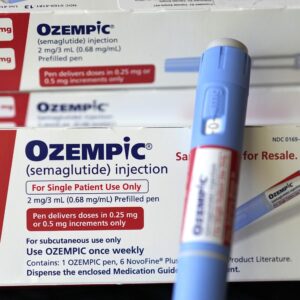Insulin
Insulin is a hormone that plays a crucial role in regulating blood sugar (glucose) levels in the body. It is produced by beta cells in the pancreas, and its main function is to facilitate the uptake of glucose by cells, where it can be used for energy. It also helps store excess glucose in the liver for later use.
When you eat, especially foods rich in carbohydrates, your blood sugar levels rise. In response to this, the pancreas releases insulin into the bloodstream. It allows cells to absorb glucose, reducing the concentration of glucose in the blood. This process helps to maintain blood sugar within a normal range.
There are two main types of diabetes, a condition where the regulation of blood sugar is impaired:
- Type 1 Diabetes: This occurs when the immune system mistakenly attacks and destroys the insulin-producing beta cells in the pancreas. People with type 1 diabetes need to take it externally, typically through injections, to manage their blood sugar levels.
- Type 2 Diabetes: This is characterized by the body’s inability to use insulin effectively, often due to its resistance. In the early stages, the pancreas may produce more insulin to compensate, but over time, it may not be able to keep up. People with type 2 diabetes may manage their condition through lifestyle changes, oral medications, and, in some cases, insulin injections.
It’s essential for individuals with diabetes to work closely with healthcare professionals to determine the right insulin regimen and dosage based on their specific needs and lifestyle. Regular monitoring of blood sugar levels is also a crucial aspect of diabetes management.
Showing all 4 results




